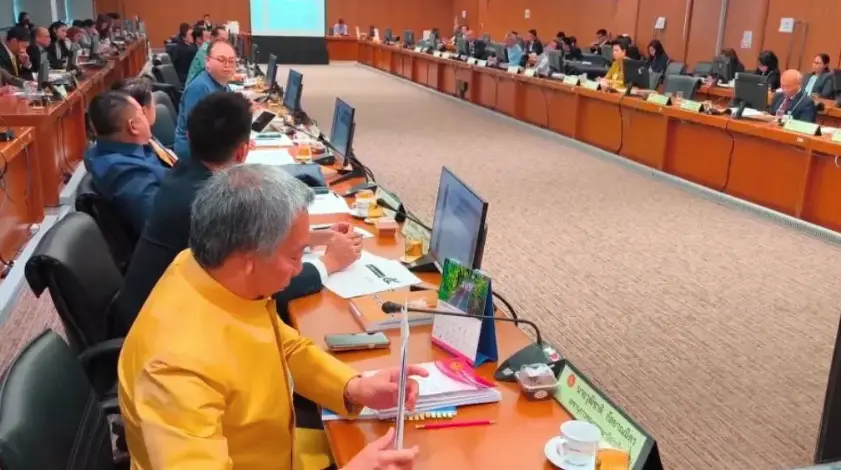The Thai Senate has officially begun reviewing three amnesty bills passed by the House of Representatives, with clear consensus emerging to exclude corruption-related offenses. However, the inclusion of lèse-majesté cases under Section 112 of the Criminal Code continues to fuel significant debate within the Senate committee overseeing the matter.
At a meeting chaired by Senate President Mongkhon Surasajja, the Senate’s Committee on Political Development resolved to move forward with an in-depth study of the proposed legislation. The session marks the next step in a process that could reshape the political and legal landscape in Thailand by offering limited amnesty for offenses committed in the context of political unrest.
Nifarid Radenahmad, deputy chairman of the committee, confirmed that a majority of committee members strongly oppose any amnesty provision for individuals involved in acts of corruption. He emphasized that protecting public resources and maintaining accountability remain non-negotiable principles.
However, the question of whether to include offenses related to lèse-majesté remains unresolved. Section 112, which criminalizes defamation, insult, or threats against the monarchy, has long been a contentious issue in Thai politics. While some argue for its exclusion from the amnesty, citing the need to uphold royal institutions, others call for case-by-case consideration to distinguish between political expression and intentional defamation.
Nifarid indicated that the committee may establish a sub-committee to more carefully analyze cases involving Section 112. He added that while protecting the monarchy aligns with global norms, nuanced legal review is necessary in cases where political opinion may be cited as a defense. Legal mechanisms already exist, he noted, to assess whether such expressions carry defamatory intent.
Responding to public concerns that the amnesty effort may unfairly benefit specific political factions, Nifarid stressed that the review process is guided by the principle of fairness for all parties. He reiterated his view that individuals who willfully committed acts of corruption should remain fully accountable under the law, regardless of political context.
The Senate committee is expected to continue its deliberations in the coming weeks, with further input likely from legal experts, civil society groups, and representatives from multiple political parties.
